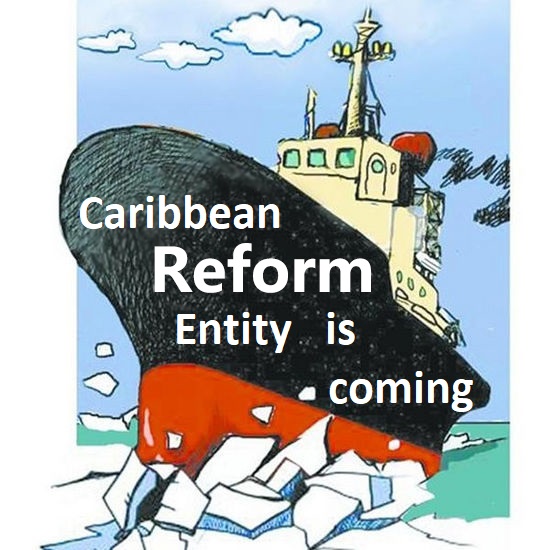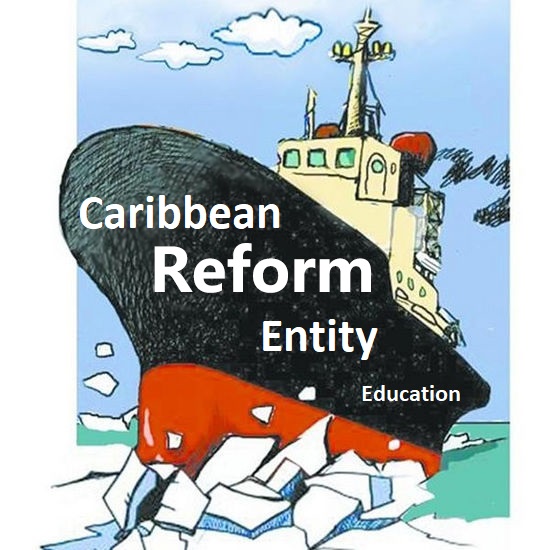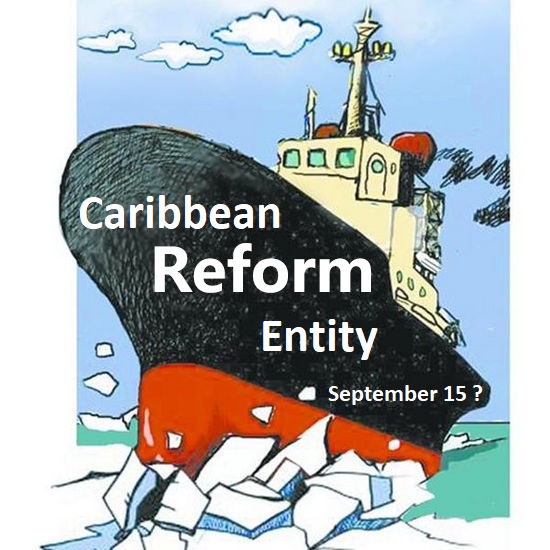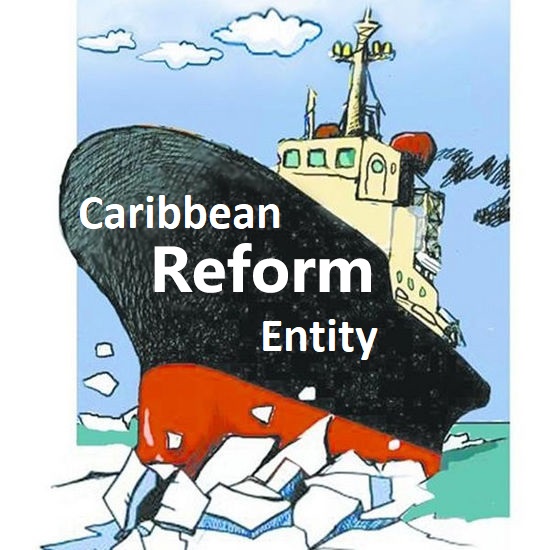Will the Caribbean Reform Entity become a reality?

PHILIPSBURG – The number of corona-virus infections has pushed attention for the Caribbean Reform Entity (CRE) to the background – but it is still there. Since Prime Minister Silveria Jacobs left the most recent meeting of the Kingdom Council of Ministers firmly refusing to accept the CRE as a condition for continued liquidity support there have been no further developments, at least not publicly. But the spokesman for State Secretary Knops confirmed to StMaartenNews.com that talks continue.
The plan to establish the Caribbean Reform Entity contains no fewer than 59 measures. They all make sense and most of them should have been taken a long time ago by successive governments since 10-10-10. What does not make sense in these plans is the extremely tight deadlines: they are simply unrealistic and will never become a reality.
But is the CRE dead in the water too? That remains an open question and there seems to be quite some maneuvering space for the Kingdom as well as for the countries that will have to live with such an entity. One idea could be to leave the establishment of the CRE out of the conditions for liquidity support and at the same time keep the process of establishing the consensus kingdom law that underpins the CRE’s authority alive.
One way or another something will have to give because St. Maarten simply cannot survive without liquidity support.
Most of the measures the kingdom intends to implement through the CRE-intervention have been described in detail in earlier articles.
See also: Knops issues tight deadlines for liquidity support conditions; Reform Entity wants to bring down public wage bill to 10 percent of GDP; Reform Entity: retirement age to 67 by 2025; Reform Entity tackles chaos at Crime Fund; Reform Entity: Healthcare and education systems need improvement.
St. Maarten needs economic, financial, social, and institutional reform to become more resilient. That observation from the CRE-document cannot surprise anybody. It is more surprising that previous governments have never taken any steps in that direction. According to the CRE-document, it is now two minutes to twelve: “The situation the countries find themselves in now does not leave space for further delay. The operating costs of the government must decrease significantly to enable lower taxes; this will stimulate investments and domestic consumption.”
It is time to devote some serious attention to the rigid labor market, obsolete labor laws, the capital market, and the investment climate.

One of the aspects that did not get the attention it deserves in previous articles is the intended reform of the education system. The CRE-document justly notes that proper education forms the foundation for “a good living environment with opportunities for everybody.” That in turn contributes to socio-economic development, growth, and diversification.
What is the problem? According to the CRE-document, there is no consistent quality of school management and teaching staff, and there is a mismatch between education and the labor market. Teaching methods are outdated, modern systems are scarce and the budget has little room for reform.
How do you fix all this? The CRE proposes the establishment of a group of experts from the four countries – the Netherlands, Curacao, Aruba, and St. Maarten; its task will be to audit the complete education system. The auditors will look at the quality of education, teaching methods, the connection with the labor market, and the effectiveness of education funding. Furthermore, the audit aims to achieve better quality through effective supervision by the education inspection.

It all sounds good and lofty, but there is a stumbling block: impossible deadlines. According to the CRE-document, a concept Plan of Approach should be submitted to the education ministers of the four countries by September 15 and it should be established before October 1.
The ideas put forth in the CRE-document are – if they become a reality – beneficial to St. Maarten and to the other Caribbean kingdom countries. But to make it all work, all parliaments must be convinced to vote in favor of the consensus kingdom law. And as long as this entity remains part of the conditions for continued liquidity support chances that this will happen are slim to non-existent.
That puts St. Maarten’s decision-makers in a tough spot because they will have to answer the next question: Where is Plan B – is there a Plan B – and how does it benefit our citizens?

###
Related articles:
Caribbean Reform Entity has 59 measures in mind
Knops issues tight deadlines for liquidity support conditions
Reform Entity wants to bring down Public Wage Bill to 10 percent of GDP
Reform Entity: Retirement age to 67 by 2025
Reform Entity tackles Chaos at Crime Fund
Reform Entity: Healthcare and Education Systems need improvement
Opinion by Hilbert Haar: “Rejected? Yes; no; well, maybe”


























